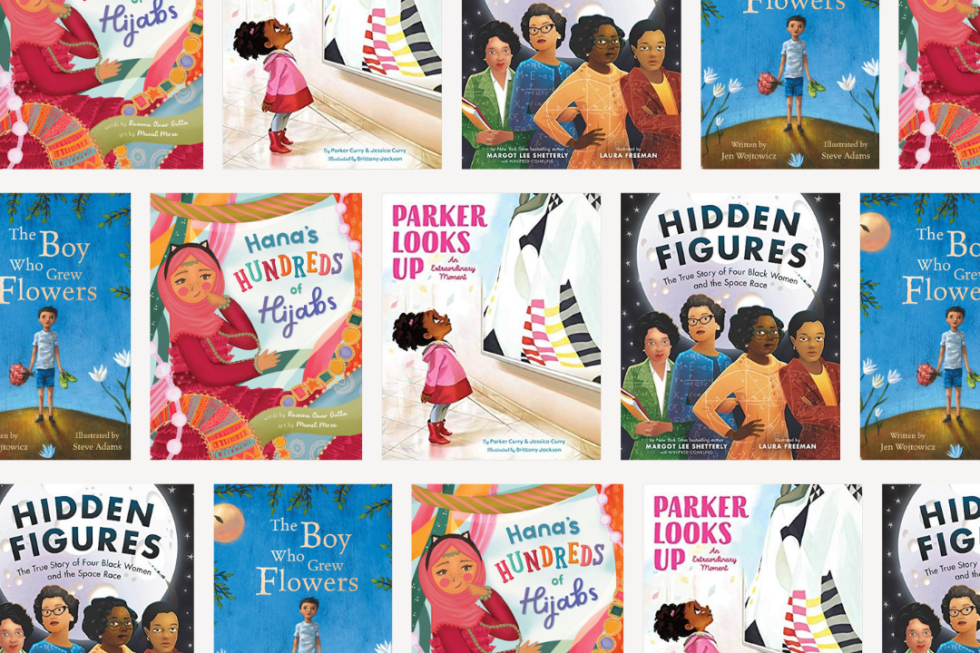Introduction
Parenting is a remarkable and transformative journey filled with countless joys and challenges. From the moment we hold our precious little ones in our arms, we embark on an adventure that shapes not only their lives but also our own. While the road may be paved with sleepless nights, tantrums, and messy moments, the joy and love that come with parenting are unparalleled. In this blog, we will explore the multifaceted aspects of parenting, sharing stories, offering advice, and providing inspiration to fellow moms and dads on their joyful journey.
Stories that Warm the Heart:

Every parent has stories that make them smile, laugh, or shed happy tears. In this section, we will share heartwarming tales of parenting triumphs, memorable milestones, and unexpected moments of joy. From the first steps to a child's unique perspective on the world, these stories will remind us of the immense privilege of being a parent and the incredible bond we share with our children. Here are a few heartwarming tales that capture the essence of the joyful journey:
- "The Little Artist's Masterpiece": One afternoon, as a tired mom came home from work, she found her four-year-old daughter sitting at the kitchen table covered in paint. Panicked at the mess, she was about to scold her daughter when she noticed the canvas on the table. It was a beautiful painting, full of vibrant colors and abstract shapes. The little girl looked up with a proud smile and said, "Mommy, I made this for you. It's our love and happiness." In that moment, the mess became a masterpiece, and the mom's heart overflowed with love and gratitude for her creative and thoughtful daughter.
- "The Unexpected Hug": A dad had a particularly challenging day at work and returned home feeling drained. As he entered the house, his three-year-old son ran up to him, wrapped his tiny arms around his legs, and squeezed him in a tight hug. Surprised and touched, the dad instantly felt his exhaustion melt away. In that simple gesture, the little boy reminded his father of the unconditional love and joy that family brings, and the dad realized that even on the toughest days, he had a precious reason to keep going.
- "A Shared Adventure": A single mom planned a surprise camping trip for her ten-year-old daughter. With no prior experience, they embarked on an outdoor adventure together, setting up their tent, roasting marshmallows, and stargazing. As they sat around the campfire, the mom realized that this trip wasn't just about teaching her daughter survival skills—it was about creating lasting memories and forging a bond that would forever connect them. Through laughter, late-night stories, and overcoming challenges together, they discovered the joy of shared experiences and the strength of their love as a family.
- "The Generous Stranger": A mother was standing in line at the grocery store with her energetic toddler in tow. Just as she reached the cashier, her little one started to have a meltdown. Feeling overwhelmed, the mom did her best to calm her child while paying for their items. As she reached into her wallet, she realized she was a few dollars short. Just then, a kind stranger behind her stepped forward and offered to cover the remaining balance. The mother's eyes filled with tears of gratitude, not only for the stranger's generosity but also for the reminder that even in moments of stress, there are people who show kindness and understanding.
These heartwarming stories serve as reminders that parenting is filled with countless moments of love, resilience, and unexpected joy. They inspire us to cherish the small, precious moments and embrace the beauty of the parent-child relationship. Each tale encapsulates the magic and warmth that come with being a parent, reinforcing the idea that the joyful journey of parenting is truly priceless.
Advice for Navigating Parenthood:

Parenting is a journey of growth and learning, not just for our children but also for ourselves. We will explore how parenthood can inspire personal development, nurturing qualities such as patience, resilience, and unconditional love. By cherishing the small moments, embracing mindfulness, and finding beauty in the ordinary, we can discover the profound joy and fulfillment that parenting brings. Here are some practical pieces of advice to help navigate the joys and complexities of parenting:
- Practice Self-Care: Parenting often involves putting the needs of your children first, but it's essential to prioritize self-care as well. Take time for yourself to recharge and rejuvenate. Whether it's engaging in a hobby, exercising, or simply enjoying moments of solitude, self-care helps you maintain balance and be a happier, more present parent.
- Embrace Flexibility: Parenting requires adaptability because no two days are the same. Be open to adjusting your expectations and plans when necessary. Flexibility allows you to navigate unexpected situations and find creative solutions, fostering a more relaxed and enjoyable parenting experience.
- Nurture Open Communication: Establishing open and honest communication with your children from an early age builds trust and strengthens your relationship. Encourage your children to express their thoughts and emotions without judgment. Actively listen to their concerns and validate their feelings, creating a safe space for open dialogue.
- Set Clear Boundaries: Establishing boundaries is crucial for creating a structured and harmonious family environment. Communicate and reinforce clear rules and expectations, ensuring that they are age-appropriate and consistent. Boundaries provide a sense of security and help children develop self-discipline and responsibility.
- Prioritize Quality Time: In today's busy world, it's easy to get caught up in various commitments. Make it a priority to spend quality time with your children. Engage in activities that foster connection and create lasting memories. Whether it's reading together, having family meals, or enjoying outdoor adventures, these moments strengthen your bond and contribute to your child's emotional well-being.
- Seek Support: Parenting can sometimes feel overwhelming, and it's okay to ask for help. Reach out to family, friends, or parenting support groups for guidance and support. Connecting with others who share similar experiences can provide reassurance and a sense of community. Remember, seeking support is a sign of strength, not weakness.
- Practice Positive Discipline: Discipline is an essential aspect of parenting, but it should be approached with a positive and nurturing mindset. Focus on teaching and guiding your children rather than resorting to punishment. Utilize strategies such as positive reinforcement, setting clear expectations, and modeling appropriate behavior to encourage their growth and development.
- Foster Independence: As your children grow, encourage their independence and decision-making skills. Provide age-appropriate responsibilities and opportunities for them to learn and take ownership of tasks. Gradually granting independence helps build their confidence, self-reliance, and problem-solving abilities.
- Embrace Imperfection: No parent is perfect, and that's okay. Embrace the imperfections and learn from your mistakes. Parenting is a journey of growth and continuous learning. Be kind to yourself, forgive yourself when things don't go as planned, and focus on the love and effort you invest in raising your children.
- Enjoy the Present Moment: Children grow up quickly, and time flies by. Embrace the present moment and savor the precious years of childhood. Be fully present in your interactions with your children, cherishing the small moments and creating lasting memories. Remember, the true joy of parenting lies in the journey itself.
Navigating parenthood can be both challenging and immensely rewarding. By implementing these practical tips, you can foster a nurturing and loving environment for your children while finding balance and fulfillment in your own life as a parent.
Celebrating Diversity in Parenting:

Celebrating diversity in parenting is about recognizing and honoring the different perspectives, family structures, and cultural traditions that exist within our global community. By embracing diversity, we can learn from one another, broaden our understanding, and create a more inclusive and compassionate parenting community. Here are some key aspects to consider when celebrating diversity in parenting:
- Recognizing Diverse Perspectives: Parenting experiences can vary greatly across cultures, religions, and socio-economic backgrounds. By acknowledging and respecting different perspectives, we open ourselves up to new ideas and approaches to raising children. This includes understanding different parenting styles, disciplinary practices, and beliefs about child-rearing.
- Embracing Different Family Structures: Families come in diverse forms, including single-parent households, blended families, same-sex couples, and multi-generational households. Recognizing and accepting these various family structures is crucial in creating an inclusive environment where all families feel valued and respected.
- Honoring Cultural Traditions: Cultural traditions play an essential role in shaping parenting practices. Celebrate and honor the cultural traditions and customs that influence parenting approaches within different communities. This includes recognizing holidays, festivals, and rituals that hold significance for families, as well as understanding how cultural heritage influences parenting values and practices.
- Encouraging Cross-Cultural Learning: Promote cross-cultural learning within your family and community. Encourage your children to interact with peers from diverse backgrounds, participate in cultural events, and learn about different traditions. This helps foster empathy, understanding, and appreciation for diverse cultures, while nurturing a sense of inclusivity.
- Challenging Stereotypes and Biases: Challenge stereotypes and biases that perpetuate harmful assumptions about different parenting practices or family structures. Recognize that there is no singular "right" way to parent and that each family has its unique strengths and challenges. Educate yourself and others to break down stereotypes and promote acceptance and understanding.
- Engaging in Intercultural Dialogue: Engage in intercultural dialogue by actively seeking out opportunities to connect with parents from different backgrounds. Participate in parenting groups, cultural organizations, or online communities that facilitate conversations and exchange of experiences. This dialogue allows for sharing insights, fostering mutual support, and building bridges across diverse parenting communities.
- Teaching Children about Diversity: Educate your children about diversity and inclusivity from a young age. Teach them to appreciate and respect different cultures, family structures, and traditions. Encourage them to ask questions, learn from their peers, and embrace the value of diversity in all aspects of life.
- Supporting Representation in Parenting Media: Support media and resources that showcase diverse parenting experiences. Seek out books, movies, and online platforms that feature diverse families and narratives. By supporting representation, we can challenge stereotypes and provide inclusive role models for children and parents alike.
By celebrating diversity in parenting, we create a world where all families feel seen, valued, and supported. Through understanding, empathy, and an open-minded approach, we can foster a nurturing and inclusive environment for children to thrive, while embracing the richness and beauty of diverse parenting practices.
Nurturing the Parent-Child Connection:

Nurturing the parent-child connection is essential for building a strong, loving, and trusting relationship with your child. It involves creating meaningful moments, fostering open communication, and promoting a deep sense of emotional closeness. Here are some key aspects to consider when nurturing the parent-child connection:
- Quality Time: Make dedicated time for one-on-one interactions with your child. Engage in activities that your child enjoys and that allow for genuine bonding. This could be reading together, playing games, going for walks, or engaging in shared hobbies. By spending quality time together, you create opportunities for laughter, conversation, and creating lasting memories.
- Active Listening: Practice active listening to truly understand and empathize with your child's thoughts and feelings. Give them your full attention, maintain eye contact, and show genuine interest in what they have to say. Reflect on their words and respond with empathy and understanding, allowing them to feel heard and valued.
- Open and Non-judgmental Communication: Create an environment where your child feels comfortable expressing themselves openly and honestly. Foster open communication by creating a safe space for them to share their thoughts, concerns, and dreams without fear of judgment. Respond with kindness, respect, and patience, encouraging them to continue sharing their experiences and emotions.
- Empathy and Validation: Cultivate empathy and validate your child's emotions. Acknowledge their feelings and let them know that it's okay to experience a range of emotions. By showing empathy and validating their experiences, you provide emotional support and create a foundation of trust within the parent-child relationship.
- Unconditional Love and Acceptance: Express your love and acceptance for your child unconditionally. Make sure they know that your love is not based on their achievements or behaviors but is constant and unwavering. This allows them to develop a strong sense of self-worth and security, knowing that they are valued for who they are.
- Rituals and Traditions: Establish family rituals and traditions that hold special meaning. These can be simple daily routines, such as sharing meals together or bedtime stories, or larger events like holiday celebrations or family outings. Rituals and traditions create a sense of belonging, strengthen family bonds, and provide a sense of stability and continuity for your child.
- Physical Affection: Physical touch, such as hugs, kisses, and cuddles, is a powerful way to nurture the parent-child connection. Regular physical affection releases feel-good hormones and helps children feel secure and loved. Show warmth and affection through gentle touches and physical closeness, allowing your child to experience the comforting and bonding power of touch.
- Lead by Example: Be a role model for the kind of relationship you want to have with your child. Demonstrate kindness, patience, and respect in your interactions with them and with others. Show them how to handle emotions, resolve conflicts, and communicate effectively. Your actions speak louder than words, and modeling healthy behaviors strengthens the parent-child connection.
Nurturing the parent-child connection requires consistent effort, patience, and understanding. By prioritizing quality time, open communication, empathy, and unconditional love, you can create a deep and lasting bond with your child. Remember that each child is unique, and nurturing the parent-child connection is a continuous journey of growth, learning, and adapting to their evolving needs.
Conclusion:
The joyful journey of parenting is an ever-evolving adventure filled with love, laughter, and growth. Through stories, advice, and inspiration, we can embrace the challenges with grace and revel in the moments of pure joy. Let us embark on this journey together, supporting and uplifting one another as we navigate the beautiful and transformative experience of being parents.





